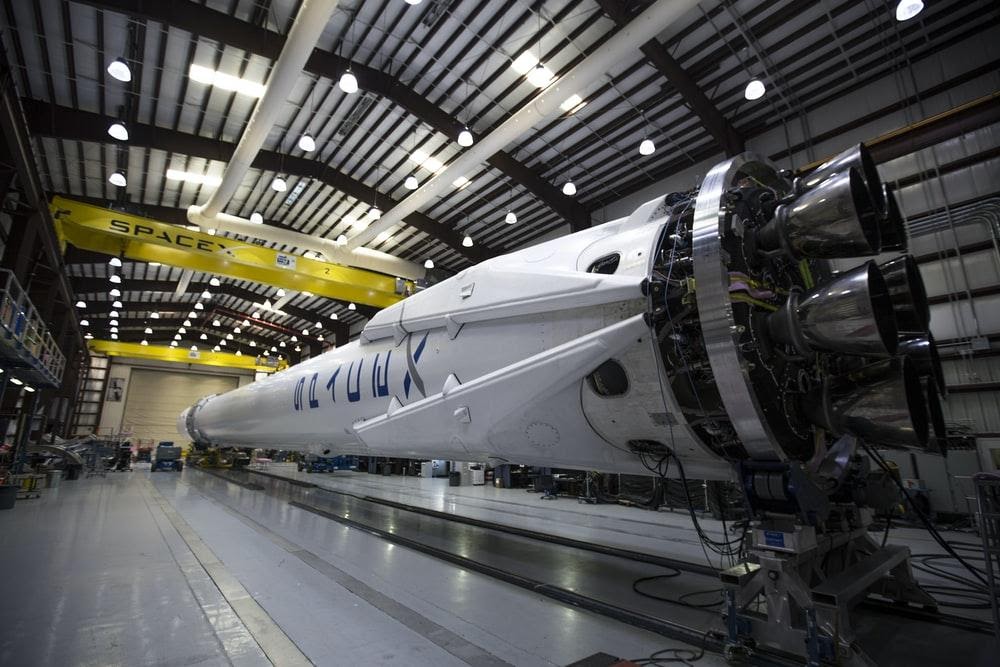United States
Engineering & Technology

Engineering is a field that deals with the application of scientific, and practical knowledge. It helps to create and design new things and maintains the technological foundation of the world.
Being the backbone of the modern world, engineers are needed everywhere- from inventing new products to repairing and maintaining the old ones. The world thrives on it. And that makes it an evergreen field.
“At its heart engineering is about using science to find creative practical solutions. It’s a noble profession.”
– Queen Elizabeth II
Upcoming Careers In Engineering & Technology
-
Engineering Teachers- A very promising career in this field is that of teachers/professors. Includes both active teaching, and research roles.
-
Bioengineers- Bioengineers and Biomedical engineers are involved in the design and development of biological and health products and systems like prosthetic and artificial organs, medical information systems, instrumentations etc. A very promising avenue in biomedical engineering is Bioinformatics.
-
3D Printing Engineers - 3D printing has made its presence known across a number of industries and hence there’s a growing demand for people who can efficiently wade through 3D modelling concepts and printing.
-
Water Resource Specialists - Another upcoming career, this consists of designing strategies and implementing programs that deal with issues such as the supply and quality of water as a resource and their compliance to regulatory standards. Given the fact that a number of cities in the world are slowly running out of water, this is an important field for people to focus on
- Robotics Engineers - Perhaps the most in demand career in this field, Robotics Engineers are involved in all aspects of design and development of robotic applications. This includes the R&D and testing activities as well.
All POPULAR BRANCHES OF ENGINEERING
To go into any of the engineering colleges or universities, one needs to give the entrance exams and get the required cut-off marks to be eligible for their favourite college/branch
Chemical Engineering
As the name suggests, chemical engineering deals with chemicals and its by-products. The sub-area of this field is the petroleum industry which pays high salary packages if one is able to land a job in any of its companies.
Computer Science Engineering (CSE)
The most common and most sought-out branch of engineering, CSE mainly covers both the hardware and software of computers or other electronic gadgets. An important part of CSE is artificial intelligence, which is software-based and currently is the best sector to study and work in. The main recruiters are IT companies. With better subject knowledge one can land into core software giants as well.
Important to remember here is that CSE is different from the Information Technology branch. While Computer Science focuses on the design, development and production of component and computer systems, IT is related to the real time applications of those systems in various fields.
EEE (Electronics and Electrical Engineering) & ECE ( Electronics and Communication Engineering)
These two branches deal with the electronics hardware segment and also software segment to some extent. With basic programming knowledge, one can land a job similar to the CSEs.
Some of the sub-parts of EEE/ECE are robotics, nanotech, etc. Graduates from ECE can work in the networking industry as well. With knowledge in the hardware field, one can go into core product development companies. The pay package is usually less than the IT sector but promotion rates are much higher.
Mechanical Engineering
Mechanical engineering is concerned with all the hardware part of any machinery you see in the world. Right from building them to repairing them, all come under the field of mechanical engineering.
Though most jobs in this field aren’t really regular desk jobs, one can also get to design the machine through Autocad if one knows it. A popular subpath of mechanical engineering is Automobile engineering, dealing mainly with building and fixing automobiles, an aspect most aspirants find interesting.
Marine Architects
Marine Architects or marine engineers deal with any hardware issues regarding ships or water transports. This is an especially attractive option for those with wanderlust, however, for those worried about the long stretches on the seas, there are options for shore and port jobs as well. With the high salary packages, marine engineering is a good option.
There are a lot more branches apart from the ones mentioned above. These include
Aeronautical, Aerospace, Biomedical, Biotechnology, Ceramic, Civil, Communications, Construction, Electrical, Industrial, Mechatronics, Metallurgical, Mining, Petroleum, Power, Production, Robotics, Structural, Structural, Telecommunication, Textile, Tool & Transportation
While this list is not exhaustive, it’s important to remember that not all colleges offer all the courses.
After completing their Bachelor's of Technology degree, one can land fresher’s jobs easily and can also opt for Masters of Technology. MBA is also a bright career option if one has an interest in business and management.
FREE COURSES
The below courses provide a good overview on the study area
- What is Engineering?: Crash Course Engineering on thecrashcourse.com
- Introduction to Engineering on edX.org
- Introduction to Biomedical Engineering on Coursera
An introduction is provided in the below video
Frequently Asked Questions
Let’s take a look at some commonly asked questions by students.
A two-year study from McKinsey Global Institute suggests that by 2030, intelligent agents and robots could replace as much as 30 percent of the world’s current human labour. According to McKinsey introduction AI and automation will displace between 400 and 800 million jobs by 2030, requiring as many as 375 million people to switch job categories entirely. But on the positive note some positions and talks that are already in demand by some of the leading tech companies are roles of AI trainers, data scientists and architects.
With latest trends coming into play and daily advances in science, engineers need to keep themselves updated, especially in the case of software engineering. Already we have the advent of Internet of Things, Machine Learning and AI, and wearable devices, driverless cars, 3D printing, virtual reality etc, so to stay relevant to the industry in 25 years constant updation of skills will be a requirement.
In the current scenario coding is a skill applied in almost all of the fields. Keeping in mind the technological advancements coding is a skill which would come handy for all engineers.
Some skills are common to the people who go into this field, regardless of what area they are specializing in. This includes a scientific bent of mind, a love of math, creativity and curiosity and adaptability.
Doing a masters degree after your graduation is not essential, but it may prove beneficial. For eg. an MBA after your engineering would help you develop managerial skills and understand things from a business aspect, while a masters in engineering would help you develop more technical knowledge.
Since engineering is not one subject but divided into different branches we study something different in each of those branches. But the basic gist is to learn the applications of whatever entails in the respective branches and learn to create and engineer new possibilities.
They should study from fundamentals, develop logical thinking, focus on improving their analytical skills, and progress to solving challenging questions. Students should also learn to apply concepts in day to day problems and develop a parallel thinking process to be able to solve a question by different methods. Students must meticulously follow the cycle of learning, practising, testing, and analysis.




